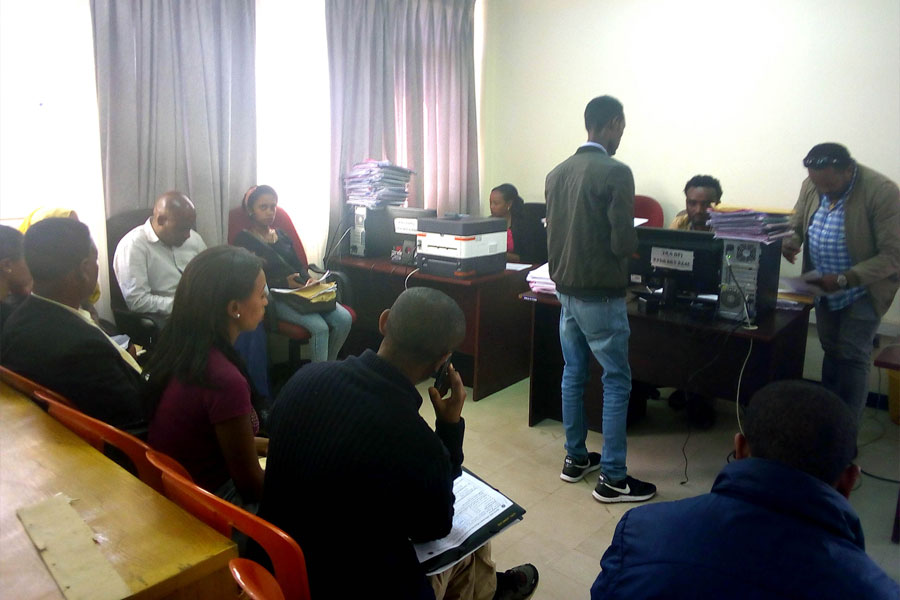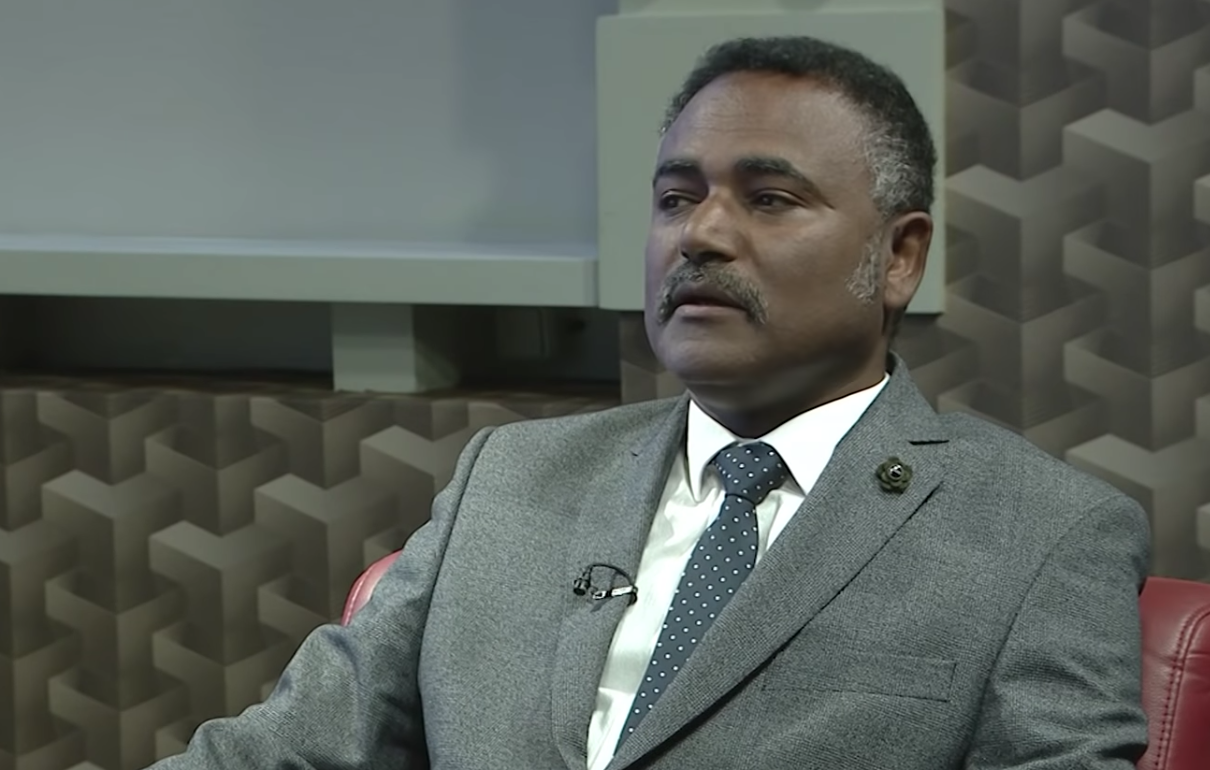
News Analysis | Mar 04,2023
Dec 4 , 2020
By Christian Tesfaye
I resolved after armed conflict broke out between the forces of the federal and Tigray regional governments early last month to stay away from social media. It was not an entirely successful aspiration, but I received some help: the unremitting toxicity of the content.
Social media sites turned right away into cesspools of misinformation and hate speech. Fake news had come to dominate the space for years, undoubtedly, but this time something was different. It was more than people just being emotional. It was about agenda setting, about consciously influencing the narrative through the employ of tactics designed to make people angry and resentful. It was not people expressing their emotions. It was a cynical attempt to incense and create outrage.
In a world where politics is not demarcated along the fault lines of identity, things would have been different. At the very least, politics based on ideological differences would inspire trying to win over the supporters of another group.
We do not live in such a world now, unfortunately. This time it was the respective elite playing to the biases and prejudices of their own supporters – it was an attempt to preach to the more extreme elements of the converted. It was perverse.
It did not just make social media platforms such as Twitter and Facebook useless for sober political engagement. It also exhausted the value of social media as a resource for progressive political and social campaigning. When the groups are demarcated along identity fault lines, any movement will be unable to cross over and win supporters outside of the main support base.
Thus, movements and calls for action in such instances change nothing on the ground. What we will have is an endless cycle of #StopWarOnTigray and #EndTPLFImpunity. Neither of them has the intention of persuading political opponents or winning an argument. They only want to exhaust the other side back from its demands.
Do not take my words for it. A far better indicator of how cheapened social media has become as a means of constructive political engagement is a recent piece by the Washington Post, published after armed conflict broke out.
“Twitter data collected from November 1 to 10 showed that 30pc of tweets about Tigray and Abiy were from accounts created this year,” the piece stated, based on the analysis of 90,000 tweets. “Nearly half (47pc) of these tweets were from accounts created in late October and early November. After November 4, the number of new accounts created per day grew from an average of 21 to 245.”
This leaves us in an awkward position. Social media is effective at giving voice to the voiceless. But the elite, in government or outside of it, are no fools. They are subverting the value of platforms by crowding them with accounts created for a single purpose: to push a certain agenda. Sometimes these are bots, applications that perform automated tasks. Other times it is groups of people organised to propagate a certain view.
The matter is not helped by social media companies who have been in large part unwilling to police their platforms in any meaningful way. Considering that many of the major ones are based in the United States, where free speech is nearly sacred, it also means that it is unlikely they would be regulated to any considerable degree.
Calls for users to self-regulate are also unlikely to work anytime soon. This takes behavioural change, and humankind is notorious for its incapacity in this regard. I would not put my bet on this.
But there is one interesting tool that may bear fruit – social media taxes. Uganda infamously introduced one back in 2018. It is not a popular idea, mostly because governments that have been eager to consider it have been autocratic, the sort that offer few alternatives to state-sponsored propaganda.
No less worrying about such laws is the worsening of digital divides as a result of these taxes. Access to the internet is increasingly determining economic outcomes at both the national and individual levels. Making people pay extra for using social media may thus increase the disparity between the rich and the poor.
Still, this alternative will likely become more and more attractive as social media begins to turn off the middle classes – as they have the most to lose from political stability - and governments are emboldened by calls to punish what undeniably is destructive hate speech.
The debate around taxes on social media should thus be had with the view that it may anyways be likely to be employed by increasingly assertive governments. The backlash to open platforms for speech that worsen political stability is likely to lead to support for restrictions, if they have not already. Governments are waiting for enough outrage, and thus consent, to use draconian suppression of social media use.
Clearly, we need to urgently set aside our outrage at the mention of social media taxes and start discussing how it can be employed for the better.
PUBLISHED ON
Dec 04,2020 [ VOL
21 , NO
1075]


News Analysis | Mar 04,2023

Radar | Jun 04,2022

Agenda | Nov 20,2021

Fortune News | Jul 17,2022

Radar | Feb 22,2020

Fortune News | Nov 16,2019

Viewpoints | Dec 19,2021

Life Matters | Nov 12,2022

Fortune News | Mar 12,2020

Commentaries | Jul 22,2023

My Opinion | 131586 Views | Aug 14,2021

My Opinion | 127942 Views | Aug 21,2021

My Opinion | 125917 Views | Sep 10,2021

My Opinion | 123541 Views | Aug 07,2021

Dec 22 , 2024 . By TIZITA SHEWAFERAW
Charged with transforming colossal state-owned enterprises into modern and competitiv...

Aug 18 , 2024 . By AKSAH ITALO
Although predictable Yonas Zerihun's job in the ride-hailing service is not immune to...

Jul 28 , 2024 . By TIZITA SHEWAFERAW
Unhabitual, perhaps too many, Samuel Gebreyohannes, 38, used to occasionally enjoy a couple of beers at breakfast. However, he recently swit...

Jul 13 , 2024 . By AKSAH ITALO
Investors who rely on tractors, trucks, and field vehicles for commuting, transporting commodities, and f...

Jun 28 , 2025
Meseret Damtie, the assertive auditor general, has never been shy about naming names...

Jun 21 , 2025
A well-worn adage says, “Budget is not destiny, but it is direction.” Examining t...

Jun 14 , 2025
Yet again, the Horn of Africa is bracing for trouble. A region already frayed by wars...

Jun 7 , 2025
Few promises shine brighter in Addis Abeba than the pledge of a roof for every family...

Jun 29 , 2025
Addis Abeba's first rains have coincided with a sweeping rise in private school tuition, prompting the city's education...

Jun 29 , 2025 . By BEZAWIT HULUAGER
Central Bank Governor Mamo Mihretu claimed a bold reconfiguration of monetary policy...

Jun 29 , 2025 . By BEZAWIT HULUAGER
The federal government is betting on a sweeping overhaul of the driver licensing regi...

Jun 29 , 2025 . By NAHOM AYELE
Gadaa Bank has listed 1.2 million shares on the Ethiopian Securities Exchange (ESX),...